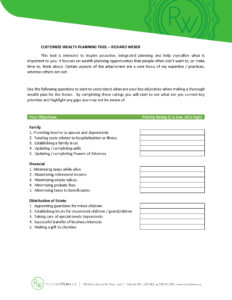
Ensuring Fair Estate Division
I have four siblings. As part of a large family, I can imagine it required ongoing effort by my parents to ensure we were all treated fairly – even by Santa each year!
Parents, as an estate planning objective, often want their children to be treated “fairly” (which may, or may not, mean “equally”) with respect to the division of their estate upon death. For many clients one particular asset (“Valuable Asset”) represents a substantial portion of their estate value – such as a business, vacation or farm property.
However, it may not be desirable for each child to receive ownership of Valuable Asset. A child may not participate in a business or may not live in close proximity to, or use, the cottage. Also, children may have attained different financial status.
Without proper advance planning, typically either (undesirable) course of action unfolds:
i) Each child receives their fair share of the estate, but the Valuable Asset has to be owned by all children (“Option 1”);
or ii) The Valuable Asset is owned by only the appropriate child, consequently the other children don’t receive their fair share of the estate (“Option 2”). This can create animosity and unfairness between siblings.
Consider Ozzy and his spouse Sharon who own a business with a value of $2.2 million. Their other assets, including their home, have a combined value of $1.3 million. Their daughter Kelly works in the business. Their son Jack has a different career. To account for Kelly’s role in the business, the couple wish to distribute their total estate value, 55% to Kelly and 45% to Jack. Hence, the amount of their other assets is not sufficient to leave Jack a fair inheritance.
Under Option 1, Kelly could inherit shares of the business worth $1.925 million. Jack could inherit $1.575 million of value comprised of the other assets and remaining shares ($275,000) of the business.
However, the value of shares owned by Jack would change based on Kelly’s effectiveness operating the business.
And Kelly would not wish to have Jack as an inactive shareholder. Jack and Kelly may become estranged!
Conversely, Kelly could inherit all the shares of the business (Option 2) and Jack could inherit the other assets but would be shortchanged by $275,000.
For many clients I am able to implement a simple, cost-effective strategy to equalize the amount of childrens’ inheritances. The strategy can help ensure the Valuable Asset is left only to the beneficiary of choice while still providing fairly for other children.
The crux of the strategy is to provide additional, tax-free capital, upon the parents’ death, to the other children (such as Jack) to “top up” their inheritance. The amount of such capital typically exceeds the cost to participate in the strategy. And family harmony is maintained!


